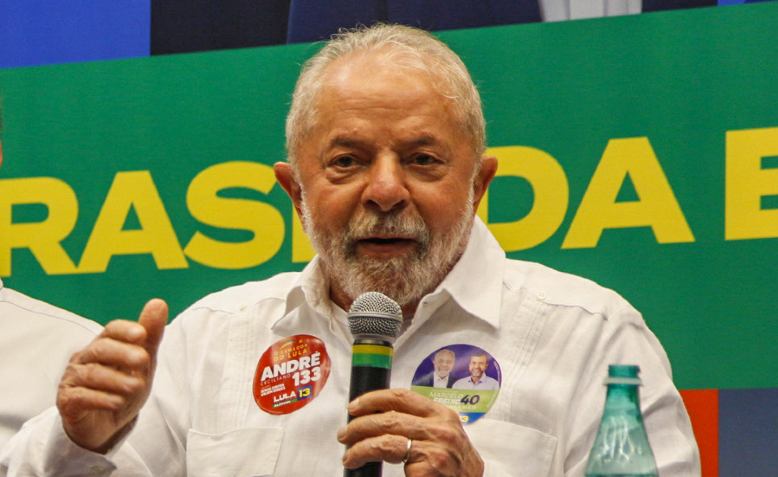 Lula. Photo: Marcelo Freixo / Flickr / CC BY 2.0, license linked below article
Lula. Photo: Marcelo Freixo / Flickr / CC BY 2.0, license linked below article
Orlando Hill explains the results of the Brazilian election, and the way forward in the fight against Bolsonaro and the far right
The forecasts on Saturday were that Lula would get between 47% and 51% of the votes. The expectation was that he was on the verge of winning in the first round. That part of the polls was right. Lula ended up with 48.43%, only 1.57% away from victory. That was the second highest percentage of votes the Workers’ Party (PT) has ever won. Only in 2006, at Lula’s peak of popularity, did the PT do any better with 48.6%.
What the polls got wrong was Bolsonaro’s performance. According to the pollsters, he should have ended up with between 37% and 41%. However, he finished with 43.2%: 5.23% behind Lula. In actual numbers, nearly 6.2 million votes behind.
What does this tell us? According to Gilberto Maringoni, professor of international relations at the Federal University of the ABC region of São Paulo (UFABC), this is a reminder that Brazil is a conservative country. After 700 thousand dead from Covid, 33 million facing food insecurity, misogynous, racist and homophobic comments from the president, fascism is no longer a foreign force. It is a native phenomenon.
Guilherme Casarões, professor at Getulio Vargas Foundation (FGV), argues that Bolsonarism has shown itself to be much stronger than anyone could have imagined. Its local roots and resilience assured candidates associated with Bolsonaro a smooth victory. Lula will be faced with a more conservative congress than the present one. Fifteen governors out of 27 managed to win in the first round. Five of them support Lula and eight Bolsonaro. Those elected will throw their weight behind their respective presidential candidates. Bolsonaro’s militants will be energised with Sunday’s results. The second round will be a fierce and violent dispute.
PT and the progressive forces consolidated their hold in the north and northeast regions – the poorest and less industrialised. Bolsonaro kept his hold on the centre-west, south and south-east regions, the more industrialised regions. For some, this illustrates the consequence of four decades of neoliberalism that dismantled industries and splintered the working class. Brazil is a society where the lumpenproletariat has enormous weight in the composition of the working class.
The political parties of the radical left that decided to launch their own presidential candidates scraped through with 0.11% of the total votes. These were the United Socialist Workers’ Party (PSTU), Unidade Popular (UP), and the Brazilian Communist Party (PCB), not to be mistaken for the Communist Party of Brazil (PC do B) which campaigned for Lula and elected six representatives to the National Congress. On the whole they did not make much difference. However, Rio Grande do Sul voters will have to choose between a hard Bolsonarista, Onyx Lorenzoni and a soft Bolosonarista, Eduardo Leite, for governor in the second round. Edgar Pretto (PT), an historic leader of the Workers’ Landless Movement (MST) failed to get through to the second round by only 2,442 votes. PCB’s candidate Carlos Messalla had 4,003 votes, while Rejane de Oliveira (PSTU) won 6,252.
Left victories
However, there were some very positive results. Guilherme Boulos, member of the national coordination of the Workers’ Homeless Movement (MTST), won a place in the national congress representing the state of São Paulo with over a million votes. He was elected as state representative for the Socialism and Liberty Party (PSOL) with the highest number of votes. On the eve of the elections, his aim was to achieve 300 thousand. Extraordinarily, it was in São Paulo, where Bolosnaro won with 47.71% percent of the votes against Lula’s 40.89% percent.
The MTST also succeeded in electing Ediane Maria (PSOL) for the state Legislative Assembly in São Paulo. The first woman who has worked as a maid to be elected. Furthermore, Sonia Guajajara (PSOL) became the first indigenous woman to win a seat in the National Congress with over 150 thousand votes. She will be the voice of the original and historically oppressed and silenced peoples in Brasilia.
Two members of the MST, Valmir Assunção (PT – Bahia), and Marcon (PT – Rio Grande do Sul) won a seat each in the National Congress. In addition, another five activists will occupy seats in state Legislative Assemblies: from the MST, Marina dos Santos (PT) in Rio de Janeiro, Adão Pretto Filho (PT) in Rio Grande do Sul, Rosa Amorim (PT) in Pernambuco, and Missias do MST (PT) in Ceará.
Their intention is to take the demands of the streets, land reform and social housing, into parliament.
What now?
Maringoni wrote an article arguing that ‘the first thing to do is to abolish the past. Enough of “In my government, the people had this and that”. What happened, happened, and now it’s time to say clearly what will be done. Is there going to be enough food for everyone?’
Above all, we need to organise and mobilise to fight for more votes and to be prepared to continue fighting after the elections have been won. It will be tough, but it will be worth it. Bolsonarism will not be defeated simply by electing Lula. but that is the first step.
As Casarões points out, ‘whoever really cares for democracy will have to get off the sofa and win votes for Lula. Disputing space with a strengthened Bolsonarism will be difficult, but it is the only way to prevent the current government’s authoritarian project from consolidating at all levels.’
Before you go
Counterfire is growing faster than ever before
We need to raise £20,000 as we are having to expand operations. We are moving to a bigger, better central office, upping our print run and distribution, buying a new printer, new computers and employing more staff.

